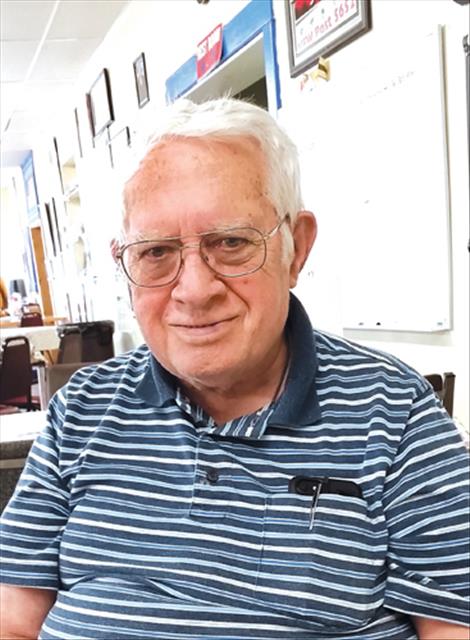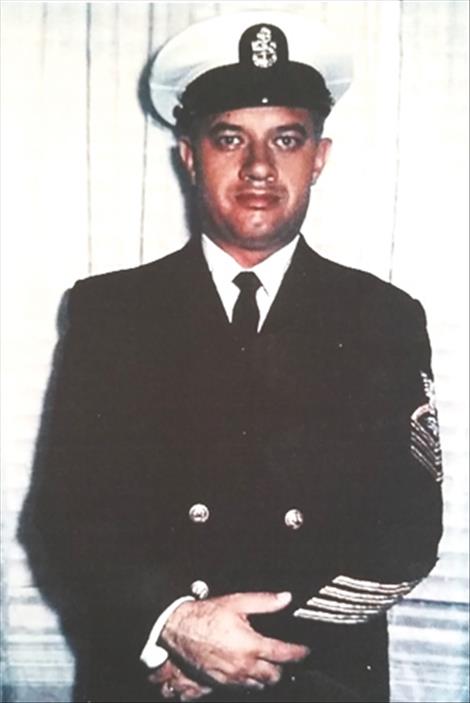Veteran Spotlight - Eugene Leafty
Hey savvy news reader! Thanks for choosing local.
You are now reading
1 of 3 free articles.
Eugene Leafty February 25, 1934 Korea: Chief Radioman, E-7 U.S. Navy Even as a sophomore in high school, Eugene Leafty thought he needed to be part of what was going on in Korea. He enlisted in the U.S. Navy on July 17, 1951. Eugene lived in Durango, Colorado at that time and was sent to 16 weeks of boot camp in San Diego, California.
Eugene was very interested in photography and was fascinated by planes, so he thought aerial photography would be just the thing. The Navy said, “No. You don’t want aerial photography. You want to be a radioman.” Eugene says, “I said OK, as if I had a choice, and went to school to be a radioman.”
Boot Camp included taking classes and a lot of marching. While there, he took correspondence classes to get his GED (General Educational Development – the equivalent of a high school diploma) and even some classes at college level. Eugene shipped out on the USS Menard from San Francisco where there was a big shipyard. His ship was involved in the original invasion at Inchon, Korea. The Battle of Inchon was an amphibious invasion and battle of the Korean War that resulted in a decisive victory and strategic reversal in favor of the United Nations. Fortunately for Eugene, the ship was never fired upon.
Eugene says his old ship was ready to get rid of him but a new ship wanted him, so he came back to San Diego on a different ship.
Much of Eugene’s service was on troop transport ships, some of which went back to Korea when the war was over. Operation Big Switch transported prisoners of war being held in South Korea back to North Korea. LCM and LCVP landing craft were used for transporting the troops from the ship to the beach. During four such trips there was no contact allowed at all with the North Koreans and no shore leave. Eugene wasn’t involved with returning U.S. prisoners. After getting Korean troops in and out, the ship would go to Hong Kong, China for R&R (rest and recreation.) Leave was generally one day with some over nights. Eugene was married after boot camp and mainly used leave time to shop for dresses, etc. for his wife. He got lots of letters from her sent from San Francisco to be delivered to his “next port” in Japan, the Philippines, wherever. During his two years on an aircraft carrier, mail came FPO (Fleet Post Office) right to the ship.
Eugene served on eight different ships during his 20-year career with the Navy. He was seasick the first 2-3 days of each trip but always got over it. Ships were 300 feet by 75 feet and very deep. One of them was an aircraft carrier. Quarters were good with bunks stacked three high. He liked Navy food. Meals were served cafeteria style with tables, etc. in a floating restaurant environment with real food - no “rations,” (the pre-packaged amount of food supplied to members of the armed forces during a war.)
Each trip from the States took six months out and six months back to the San Francisco shipyard to be checked out.
The best parts of Eugene’s service in the Navy were the travel and the training. He used the G.I. Bill (a law that provided a range of benefits for returning war veterans) to go to the Montana State University, Bozeman, for a couple of years. Today he is a ham radio operator. Eugene’s philosophy includes a military draft. He believes it would be good for very young men, age 18, to spend two years in the military, especially for those who don’t have any real incentive to do anything else. He advises young people who are thinking about the service, “Do it! They will get training whether they like it or not!” Eugene has no objection to women serving in the military, but not on the front lines.
Eugene says he would probably do it over again. His wife knew what career Navy life was about and said she would be satisfied if they would have twelve kids. Eugene made it home often enough to keep his promise. One of the twelve children now teaches at Ronan High School.
Thank you for your service, Eugene.

















